This decade featured Olympics in Sydney, Athens and Beijing as we celebrate the most memorable events in the 80-year history of AW
Freeman’s Sydney spectacular
When it comes to the Sydney Olympics of 2000, one athlete above all comes immediately to mind. The undisputed face of those Games was sprinter Cathy Freeman.
All of the eyes of the world were upon her when she lit the cauldron and then, on what became known as “Magic Monday”, she donned her speedsuit and met the acclaim of a 112,000-strong crowd in Stadium Australia as she won the women’s 400m gold in style.
As Jason Henderson wrote in his report for AW: “Forget about Sydney flu. Anyone entering Australia before these Games couldn’t avoid being bitten by a much stronger bug: Freeman fever. The Aboriginal icon, described in Australia as a mix between Princess Diana and David Beckham, such is her fame, had the pressure of a nation riding on her slim shoulders – and she did not disappoint.”
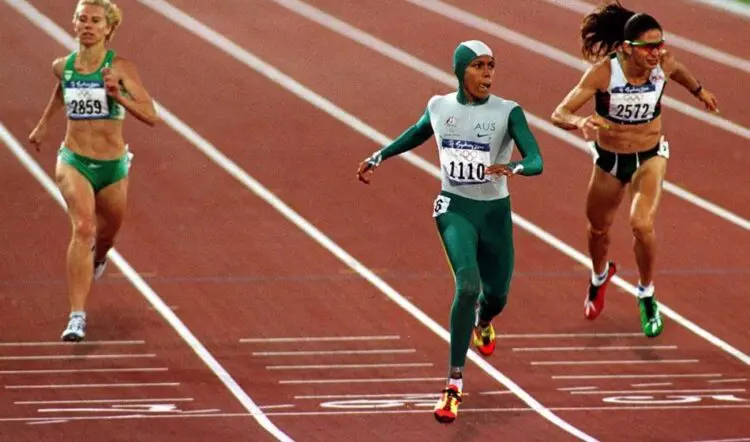
Freeman was no stranger to success, having won the world title in 1997 and 1999 but the pressure she was under cannot be overstated. Her main rival – France’s reigning Olympic champion Marie-Jose Perec, who had been hounded by the Australian media – fled the Games on the eve of the race. But, if anything, that only cranked up the expectation levels.
Running in lane six, Freeman stuck to her plan and it worked perfectly as she crossed the line in 49.11 ahead of Jamaica’s Lorraine Graham (49.58) and AW columnist Katharine Merry (49.72). Freeman became the first Aboriginal athlete to win an individual Olympic gold medal.
Gebreselassie v Tergat
Just minutes after Freeman’s heroics, the field lined up for the men’s 10,000m final. It was another race to remember and centred around two men – Haile Gebrselassie and Paul Tergat.
The latter had become accustomed to finishing second behind his great rival, who had not been beaten in five years and won three world titles and one Olympic gold in that time. Gebrselassie’s great strength was his finishing speed but, in Sydney, Tergat tried to beat him at his own game and it produced one of the most thrilling finishes ever seen in a distance race.
With 250m to go, Tergat went for broke and it was not until the final 20 metres that the Ethiopian drew level. It was during the closing 10 metres that he edged ahead and just hit the line first in 27:18.20 as Tergat finished only 0.09 behind. The winning margin was narrower than the men’s 100m final at the same Games (0.12).
Denise defies the pain
After winning Olympic bronze in 1996, by the turn of the millennium Denise Lewis had edged her way into gold medal contention, finishing second in the heptathlon at both the 1997 and 1999 World Championships.
All had been going well in the summer of 2000 as she broke her own British record with 6831 but, with a little over two months to go until Sydney, she badly damaged her left Achilles. There was a further injury to her right foot, too, which meant that she was taped and bandaged up to the hilt as she began her campaign in Australia.
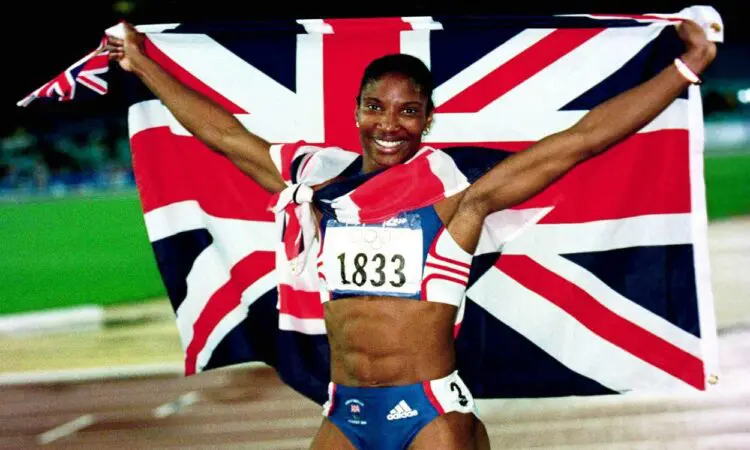
She sat eighth, 152 points off the lead, after the first two events, but a throw of 15.55m in the shot sent her up to second place and, after the 200m, she finished day one in third.
Lewis began day two with a long jump of 6.48m that aggravated her foot problem but saw her move to within 67 points of the lead. She then produced a javelin PB of 50.19m that hurled her to the top of the standings. Running through the pain, an 800m of 2:16.83 gave her a final total of 6854 that secured victory by 53 points.
Radcliffe rewrites the rules
There are some world records which truly change the nature of an event and Paula Radcliffe’s landmark marathon performance of 2:15:25 from London in 2003 is one such mark. When she did it, the Bedford athlete topped the UK rankings for the year – ahead of the entire British male population, let alone women.
“The Oxford English Dictionary should consider a new word for its pages,” wrote Jason Henderson in AW. “Radcliffesque: total dedication and bloody-mindedness, especially regarding the pursuit of sporting excellence. Paula ran some parts of her marathon at sub-five-minute mile pace. Yet only half a century ago women found it impossible to break five minutes for a mile and it was not until 1954 that Britain’s Diane Leather became the first female to break the barrier.
“If this former asthmatic, who once struggled to a mere 299th in the national cross country championships, can perform such feats, then what can the rest of us achieve if we set our minds to it?”
Winning literally by a mile, the 29-year-old shattered her previous record by 1:53 and only 14 men ran better times that day.
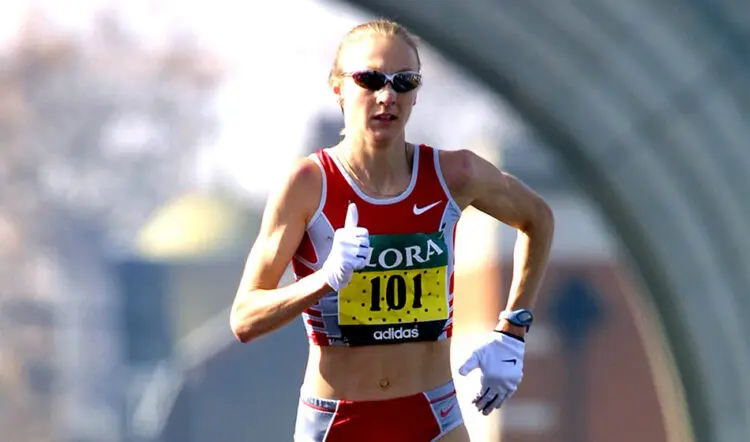
Teenage kick from Kipchoge
Long before he became known as the greatest marathon runner of all time, Eliud Kipchoge first showcased his talent on a major stage after winning a heavyweight 5000m final at the 2003 World Championships in Paris.
He was up against a field that included Hicham El Guerrouj, who had won his fourth consecutive 1500m title four days earlier and the marginal favourite, the newly-crowned 10,000m champion Kenenisa Bekele. Kipchoge, then 18, had recently broken the world junior 5000m record with 12:52.81 but he had not been expected to outrun his rivals.
Bekele forced the early pace and blasted through the first 2000m inside world record pace. He moved aside at 3000m to let Kipchoge take the front as the field slowed but, with 900m to go, El Guerrouj took the lead.
The Moroccan was still there with 200m to go but it was Kipchoge who came out on top in the fight for the line, winning in 12:52.79, as El Guerrouj clocked 12:52.83 and Bekele 12:53.12.
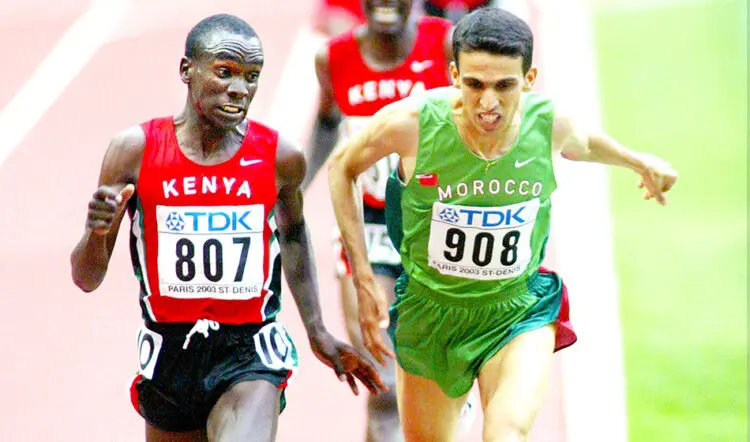
Holmes’ dreams come true
Wide-eyed and with arms outstretched in a picture of shock and sheer elation, Kelly Holmes had achieved her childhood ambition of becoming Olympic champion, in the 800m, at Athens 2004. But, as it turned out, she was only just getting started.
“I still had my ultimate dream to do,” she told AW in 2020. Fast forward just five days from that triumph, and the British middle-distance superstar had accomplished it. “Coming into Athens I had only made up my mind three days before that I was going to take part in the double. The 1500m had always been my dream so the thought of doing 800m before was just such a big risk. However, I thought it was worth the risk.”
In the 800m final, Holmes was seventh at the bell but started to move through the field, as did her former training partner Maria Mutola, the defending champion and multiple world gold medallist.
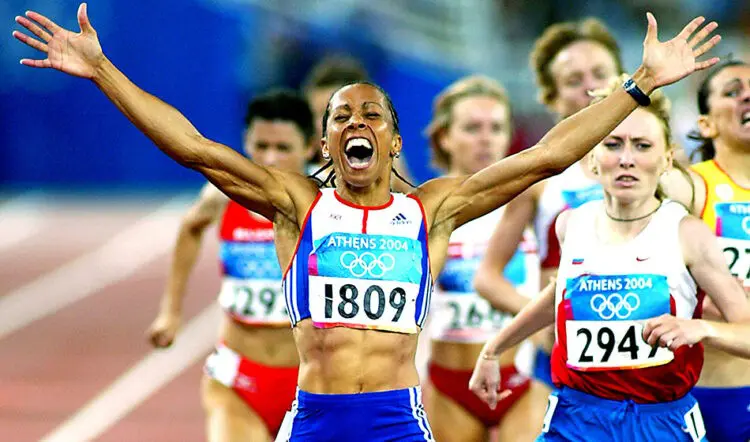
As Holmes drove, so too did Hasna Benhassi and Jolanda Ceplak and they pipped Mutola into fourth as Holmes gained her first global gold in a time of 1:56.38.
She refocussed for the 1500m final, which proved to be the race of her life. “I felt like I was floating. I was so in the zone,” she said of a performance that saw her cross the finish line in 3:57.90, breaking her own British record set over seven years before.
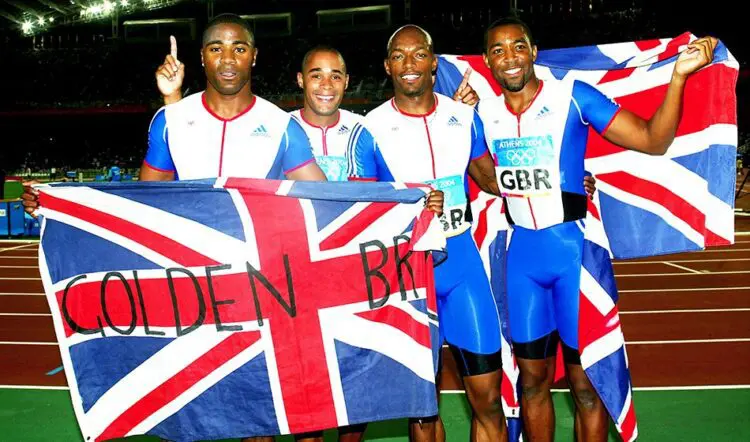
Brits’ relay gold
With medal success only coming from Kelly Holmes, the British team were in need of more welcome news from Athens but few saw it coming in the men’s 4x100m relay.
Not since 1912 had Britain won gold in the event but Jason Gardener, Darren Campbell, Marlon Devonish and Mark Lewis-Francis combined beautifully to achieve a victory that involved teamwork, talent and overcoming the odds.
With a time of 38.07, they came out on top by 0.01 against an American team which included Justin Gatlin and Shawn Crawford, the 100m and 200m gold medallists respectively at those Games, plus Coby Miller and Maurice Greene on the anchor.
Jones’ downfall
Marion Jones of the USA was the dominant force in the world of women’s sprinting at the turn of the century, so much so that she had set herself the goal of winning five gold medals at the Sydney Olympics. She didn’t quite hit that target, winning the 100m, 200m and 4x400m relay, but she also left Australia with long jump and 4x100m relay bronze.
After those Games, she was dogged by doping accusations, even though she had never tested positive. Matters were made worse by her marriage to CJ Hunter and relationship with Tim Montgomery, two athletes who had tested positive for performance-enhancing drugs (PEDs). In October 2007, after the fall-out of the BALCO investigation in the United States which uncovered the supply of PEDs to a number of athletes by a laboratory in San Francisco, Jones confessed that she had lied to a grand jury when she stated that she had never taken PEDs. She was sentenced to six months in jail stripped of all of her times and medals.
Bolt bursts through in Beijing
Usain Bolt would run faster, at the Berlin World Championships of 2009, but it was at the 2008 Olympics in Beijing where he exploded into the global consciousness with world record-breaking victories in the 100m, 200m and 4x100m.
“Until this month,” AW’s report began at the conclusion of the Games, “Beijing was best known for Tiananmen Square, the Forbidden City and its famous crispy duck. Now, it will be associated forever with the iconic Bird’s Nest stadium and the sporting exploits of Usain Bolt.
“Such was his impact in these Games, if he maintains his form in the years to come he could match or surpass the exploits of Carl Lewis, Jesse Owens and Michael Johnson. There have even been some comparisons with boxer Muhammad Ali.”
Bolt’s talent was in evidence earlier that year when, in just his fifth competitive 100m, he defeated Tyson Gay and replaced the American as world record-holder with a time of 9.72 in New York.
He was now favourite for Olympic gold and left onlookers speechless by not only winning in 9.69, but celebrating well before the line and running with an untied shoelace. The fireworks continued in the 200m, as he won by an enormous margin of 0.66 with another record-breaking run of 19.30. Shawn Crawford of the USA was a distant second.
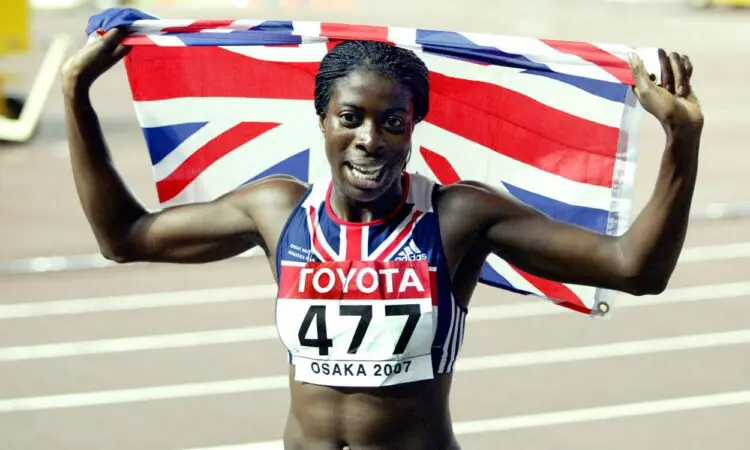
Ohuruogu’s Olympic moment
Just three weeks after completing a one-year ban for missing three out of competition drugs tests, Christine Ohuruogu had become 400m world champion in Osaka in 2007. To be able to compete in the Olympics of 2008, however, she had to successfully overturn a British Olympic Association by-law precluding athletes found guilty of drug-test offences from competing in future Games.
Her global gold in Japan had not turned the tide of negative attention she was receiving from both the media and the public so there was no shortage of criticism coming the Briton’s way as she competed in China.
After 300m of the final, it looked like she might not feature in the medals at all as she was down on a field that was being led by Sanya Richards-Ross. As she had done with her world title win, however, Ohuruogu began to gain late ground and she reeled her opponents in, winning in 49.62, just pipping Shericka Williams of Jamaica by 0.07, while Richards-Ross faded to third in 49.93.
Did you know?
At the 2006 World Cross Country Championships in Fukuoka, Kenenisa Bekele became the most successful cross country runner ever with his ninth and tenth individual titles.
